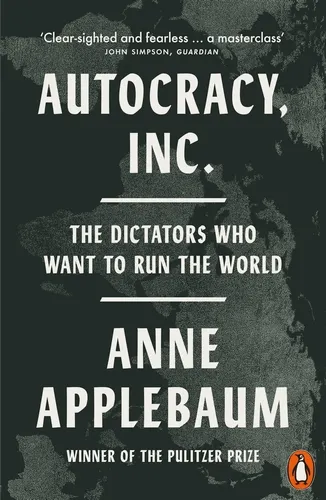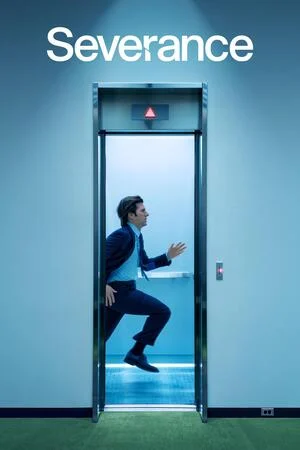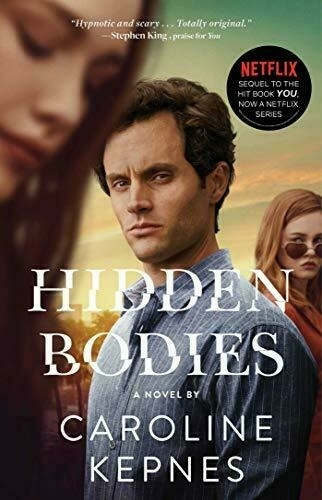A text, a Telegram link, then an offer of money: how Iran sought to recruit spies in Israel
Recently I read:
How the Supreme Court’s Injunction Ruling Expands Trump’s Power: ‘The Supreme Court ruling barring judges from swiftly blocking government actions, even when they may be illegal, is yet another way that checks on executive authority have eroded’
Wendell Berry's 9 standards for embracing technological innovation
Another interesting article from The Honest Broker goes through Wendell Berry’s “nine reasonable requirements for new tech” list. The list might be nearly 40 years old by now, but it seems to have maintained its relevance as we make present-day technology decisions.
- The new tool should be cheaper than the one it replaces.
- It should be at least as small in scale as the one it replaces.
- It should do work that is clearly and demonstrably better than the one it replaces.
- It should use less energy than the one it replaces.
- If possible, it should use some form of solar energy, such as that of the body.
- It should be repairable by a person of ordinary intelligence, provided that he or she has the necessary tools.
- It should be purchasable and repairable as near to home as possible.
- It should come from a small, privately owned shop or store that will take it back for maintenance and repair.
- It should come from a small, privately owned shop or store that will take it back for maintenance and repair.
Wendell used them to come to the conclusion that he didn’t really want to replace his typewriter with a computer (although I’m not sure how tenable or acceptable the “get your wife to use the typewriter” take really is; something several other people also noted).
But more generally, in the modern era, where “should you have a computer?” is not really up for debate any more, most of them remain a useful yardstick to consider technology being developed today against.
And in Gioia’s view, each one of them highlights the vast array of places where many of technology companies are currently failing us.
….the failure of tech companies to meet his modest demands is now painfully evident to everybody.
'Almost everything in the digital world is turning into its opposite'
I totally agree with the main thrust of this article from The Honest Broker - that Google is increasingly less a useful way to search for links on topics that interest you, not least due to their incessant desire to keep you on their site.
But it was this passage from Ted Gioia that caught my attention as being both insightful and a catchy summary of one vision of how our digital life is changing.
Almost everything in the digital world is turning into its opposite.
Social media platforms now prevent people from having a social life.
ChatGPT makes you less likely to chat with anybody.
Relationship apps make it harder for couples to form lasting relationships.
Health and wellness websites make it almost impossible to find reliable health advice—instead peddling products of dubious efficacy.
Product review sites now prevent people from reading impartial reviews by actual users of the product, instead operating as pay-for-play vehicles.
Etc. etc. etc.
📚Finished reading Queen Macbeth by Val McDermid.
This short book tells a new episode from the world of Shakespeare’s Macbeth. But, him having apparently died in battle before the main story starts, it’s about the adventures of his surviving wife and the women around her as they seek refuge from would-be killers greedy to take the throne for themselves.
To be honest I don’t remember enough about the play for the references to be particularly meaningful to me - but even with that it’s a perfectly readable and enjoyable story that’s quick to get through.

📺 Watched Louis Theroux: The Settlers.
Louis Theroux is back in his indomitable style, this time (re)visiting the extremely nationalist Israeli settlers who are trying to build their homes in the Palestinian territory of the West Bank - contrary to international law.
We learn about the lives of the settlers, their dreams of the settlment-buildings, along with the inverse side; what it now means try and live your life as a Palestinian in the West Bank. It’s obviously a very relevant-to-current-times documentary, about a topic that we should all want to learn about. Available on BBC iPlayer.

People with neurodiversity are more likely to also have obesity
Flint et al write regarding the potential link between neurodiversity and having obesity; a correlation I was not previously aware of.
In 2024, analysis of Health Survey for England data between 2016 and 2019 identified that participants with neurodiversity were almost 64% more likely to have obesity than the general population, and that this likelihood increased to 70% for participants with a learning disability.
A meta-analysis of 95 studies examined weight status in autistic people and people with ADHD. The pooled estimates of the prevalence of obesity and overweight were 21·8% and 19·8% in autistic people, and 14·7% and 20·9% in people with ADHD.
Why? It’s early days on this subject I’m sure - but they put forward a few claims:
Several factors contribute to the high prevalence of obesity and atypical weight gain in people with neurodiversity, such as genetic variants, eating behaviour (including preference for caloric-dense foods), sensory sensitivities affecting food tastes and textures, health-care experiences, stigma, and weight-promoting medications. People with neurodiversity are also at increased risk of obesity-related complications, such as sleep apnoea, type 2 diabetes, gastrointestinal disturbances, orthopaedic problems, and psychological disorders (eg, depression, anxiety, social isolation, and stigma).
As always: more research is needed! Right now very little explicitly examines this population.
It never ends - Trump continues to do satirists' jobs for them
From the scrapbook of “this must be an Onion article; oh no turns out it isn’t”:
Trump renames V-E day -aka Victory in Europe day, the commemoration of the end of World War 2 - “Victory Day for World War II” because he doesn’t like how the word “Europe” features in the original. Presumably he doesn’t understand the word “in” either.
Part of his reasoning is apparently America basically won it on its own. And isn’t military or jingoistic or obsessed with itself enough just yet.
We won both Wars, nobody was close to us in terms of strength, bravery, or military brilliance, but we never celebrate anything,
Veteran’s Day also also to be known as the far less comprehensive and catchy name “Victory Day for World War I”.
He then reflects that the US Declaration of Independence is “is a declaration of unity and love”. Of course it is in fact the opposite - a declaration of…umm…independence; the separation of the United States from English rule.
Next up, following the death of the pope, Trump’s White House shares an AI generated picture of himself dressed as the pope. Yes, it seems he wants to be the pope. He’s not Catholic of course nor a cardinal but hey, he is Trump and pope sounds important and fancy and comes with a residence full of expensive things.

Finally for today, a confirmation that he believes that the letters annotating the tattoo of Abrego Garcia’s hand that he is claiming is evidence of his affiliation with the gang MS-13 are literally real. As in that the labels actually appear on the guy’s hand rather than being obviously superimposed typed-on annotations of the actual photo. Or as Gizmodo put it: Trump Really Believes His Fake ‘MS-13 Tattoo’ Photo Is Real

In case you too can’t process visual images in a rational way, it has been confirmed that the letters are annotations. Not to mention that “There was no clear evidence the symbols on Abrego Garcia’s fingers proved an affiliation with MS-13”.
The annotations also don’t appear on any other photographs of Abrego Garcia.
Isaacson's biography of Elon Musk is a somewhat hagiographic telling of his life up until 2023.
📚 Finished reading: Elon Musk by Walter Isaacson.
This is one of the more famous biographies of Elon Musk so far. Reading it is part of my ill-fated efforts to understand what on Earth is driving the people who are causing life in 2025 to be far more horrific than it needs to be; to comprehend the incomprehensible. See also: Hillbilly Elegy.
Although when an unwitting colleague found out I had mainlined my reading straight from Vance into Musk they gently enquired whether perhaps I needed a wellness check. I’m sure they’re right.
Of course the biography wasn’t written yesterday. It was published in 2023 - so somewhat before the guy in question fully started literally dancing like a puppet on Trump’s election stage and using a chainsaw to diminish the power and reputation of the former world superpower known as the United States.
That said, the book is recent enough to describe some of his descent into conspiracy madness and new-found affiliation with some of illiberal ideas and powerbrokers of today - along with his ability to make extremely cringe and society-destroying tweets.
At one point his brother apparently felt compelled to lock Elon’s phone in a hotel safe to keep him away from overnight text-based destruction. Presumably unable to survive even one night without the ability to type “interesting” underneath a random proto-Nazi tweet, Musk called hotel security to bust into the safe.
It certainly covers his acquisition of Twitter in detail, along with SpaceX, Tesla, Paypal and the other businesses that made him rich and famous. Most of these things weren’t his invention of course. The guy who sued people to make them call him Tesla’s founder as opposed to what he really was, an early investor, is not shy of taking credit for all the great wonders of the world.
But of course none of these Great Men of Modern HIstory were really self-made. He did not invent Paypal, nor Tesla, nor Twitter. In fact his association with Paypal was really down to his own attempt to create a company doing something similar, called - wait for it - x.com - failed. Unfortunately he still owns the URL as it turns out.
Of course, whatever one’s opinion of Elon is, I don’t mean to give him no credit. Indisputably some of his particular talents drove progress on some of these projects onwards. And (some of) this may have been a wonderful thing if the original missions around saving humanity, helping the environment and so on had remained his focus. And we ignore the way he abused people along the way.
Of course it is extremely hard for me to read the book without a certain amount of prejudice and bias, knowing what came next. That said, I think I would, even without Musk’s recent ventures into what passes for politics these days, have felt the author gave him a bit too easy of a time. Perhaps this comes from the fact it’s clear that
The general vibe once we get past his childhood is that of a tortured genius. That he might abuse his workers, his family, his friends, especially when overtaken by one of his dark moods.
Elon’s moods would cycle through light and dark, intense and goofy, detached and emotional, with occasional plunges into what those around him dreaded as “demon mode.”
He might take shortcuts that don’t work out, break laws, inadvertently blow up things, fall out with his family and the like. But that it’s all in the service of something greater.
This emotional shutoff valve could make him callous, but it also made him a risk-seeking innovator. “He learned to shut down fear,” she says. “If you turn off fear, then maybe you have to turn off other things, like joy or empathy.”
The takeaway seems to be that we should somehow tolerate the harm and havoc he wreaks on those around him - at least the the chunks of his impulsivity and cruelty that are detailed here - because we need the visionary successes that those allowances permit him to make.
But do we? Do we actually? Even now?
Some of this bias probably comes from who the author had access to. The book is very detailed and he clearly had access to a ton of the high-powered folk that surrounded Elon. So it’s useful and educational on that front. But there’s not so much from for instance a random worker on the Tesla manufacture floor or the group of people that wanted to unionise. To be fair there is a mention of the workplace injury rate being higher than elsewhere, but it’s not really dug into.
It’s certainly not that the book doesn’t document his business and personal failings. It’s just that it seems to very often excuse them. Although there is enough detail that I think if you just knew Elon as a genius inventor who simply wants to save humanity you will learn a lot about how and why he does what he does, and the flaws that come along for the ride.
Do the audaciousness and hubris that drive him to attempt epic feats excuse his bad behavior, his callousness, his recklessness? The times he’s an asshole? The answer is no, of course not. One can admire a person’s good traits and decry the bad ones. But it’s also important to understand how the strands are woven together, sometimes tightly. It can be hard to remove the dark ones without unraveling the whole cloth. As Shakespeare teaches us, all heroes have flaws, some tragic, some conquered, and those we cast as villains can be complex.
Even the best people, he wrote, are “molded out of faults”
I did learn some things from this book that could be useful in understanding what came next.
His childhood seems to have been very difficult, growing up in a challenging place at a violent time with an extraordinarily abusive father.
Errol Musk, an engineer, rogue, and charismatic fantasist who to this day bedevils Elon. … He would end every tirade by telling Elon how pathetic he was. Elon would just have to stand there, not allowed to leave. “It was mental torture,”
He was horribly bullied by his peers and his parents. Isaacson suggests that this why he became obsessed with owning the grown-up playground of bullies that is Twitter.
But there were two other reasons, I think, that Musk wanted to own Twitter. The first was a simple one. It was fun, like an amusement park. It offered political smackdowns, intellectual gladiator matches, dopey memes, important public announcements, valuable marketing, bad puns, and unfiltered opinions. Are you not entertained?
And second, I believe there was a psychological, personal yearing. Twitter was the ultimate playground. As a kid, he was beaten and bullied on the playground, never having been endowed with the emotional dexterity needed to thrive on that rugged terrain. It instilled a deep pain and sometimes caused him to react to slights far too emotionally, but it also is what girded him to be able to face the world and fight every battle fiercely. When he felt dinged up, cornered, bullied, either online or in person, it took him back to a place that was super painful, where he was dissed by his father and bullied by his classmates. But now he could own the playground.
He at least self-identifies as having certain issues of the mind. Along with I think Asperger’s Syndrome, although it isn’t clear to me that he was ever diagnosed with it, or anything else that he seems to be exhibiting the signs of.
There’s plenty detailed about his way of working that clearly foreshadowed what he would do to the US state, not that it seems there was really a way of avoiding this unelected leader of a fake government department doing what he does.
Musk is a big fan of removing things, deleting things, cancelling and cutting anything that might not be technically essential given the laws of physics. He will bully engineers to do that no matter how much of a bad idea they think it is. If it goes wrong then, fine, it goes wrong. In the book he repeatedly states that he believes that if you’re not having to undo 10% of the cuts you make then you’re not cutting enough.
This of course might work well for developing a new flange for a car or whatever, but I’m not so sure it’s so easy to undo, for instance, mass firings within the public sector. He is drawn to, obsessed by, taking risks. When it comes to public “service” and society though, perhaps some risks are not worth taking.
His penchant for censorship and persecution, despite his hypocritical pronouncements on free speech is likewise nothing new. After he purchased Twitter:
They agreed that the next priority would be identifying and firing those who were not trustworthy, or more specifically, those who did not seem to be completely loyal to Musk.
The team began going over the Slack messages and social media postings of Twitter employees, focusing on those who had high levels of access to the software stack. “He told us to find the people who might be disgruntled or a threat,” Dhaval says. They searched for keywords, including “Elon,” on the public Slack channel.

📚 Want to read: Erasing History by Jason Stanley.
Jason Stanley exposes the true danger of the authoritarian right’s attacks on education, identifies their key tactics and funders, and traces their intellectual roots.
Jung - A Very Short Introduction is a useful brief on key Jungian concepts
📚 Finished listening to Jung - A Very Short Introduction by Anthony Stevens.
This is exactly what the title sounds like. It covers the key concepts formulated and developed by the influential Swiss psychotherapist Carl Jung.
You may have heard of several of these. The list includes:
- synchronicity
- archetypes
- the collective unconscious
- the shadow
- the persona
- psychological types
- dream interpretation
- anima & animus
- plus our inner goal - the individuation of the Self.
I was particularly intrigued by the concept of archetypes. Jung believed that we all inherit knowledge and experiences from our forebears - the collective unconscious. These ideas are expressed as symbols and archetypes that transcend cultures - although naturally different cultures will name them differently.
Example archetypes mentioned in the book and/or elsewhere include:
- the mother
- the father
- the maiden
- the hero
- the child
- the trickster
- the wise old man
- the innocent
- the orphan
- the caregiver
- the explorer
- the rebel
- the lover
- the ruler
and no doubt many more. I’m curious to what extent the presence of archetypes across cultures has been studied since Jung’s type - this seems like an aspect of psychoanalysis that would be relatively easy to validate. At a glance it seems like some studies have since validated the usefulness of Jungian therapy in general, although it certainly has its critics who would claim that evidence remains rather lacking and the practice rather unstudied.
The book also details something of Jung’s biography. He had a somewhat strange childhood which no doubt was formative in the development of his later ideas. There’s also a chapter on to what extent he was antisemitic. We learn also about what is involved in a session of Jungian analysis.
I listened to, rather than read this, which was probably a mistake. Being a “very short introduction” each section proceeds rather quickly. I had to rewind very frequently to make sure I didn’t miss too much. But I do believe my understanding of the gentleman, his thoughts and theory is still much improved from a previously negligible baseline.

Autocracy, Inc. elucidates the workings of the modern-day autocrats and how we might fight against them
📚 Finished reading Autocracy, Inc. by Anne Applebaum.
In this book I believe Anne Applebaum adeptly identifies what underlies a lot of what underlies our various contemporary geopolitical permacrisis - including what is new and different about it vs past times.
Autocracies have of course existed since time immemorial. The key tenet defining them is that the ruler - usually, and by some definitions it must be, a single person- has all the power. They hold absolute power over their citizens and institutions. They choose what rights their citizens have, how they must behave, who gets punished and how, along with everything they care about regarding how the country in question is run.
If they hold elections, they are meaningless. There is no “legitimate” process to displace the power of the autocrat. They stay until they’ve had enough, or die. The only thing that constrains them is what needs to be done to preserve their power.
Despite the rise of democracies, plenty of autocracies still exist today. Applebaum includes Russia, China, Iran, North Korea, Venezuela, Nicaragua, Angola, Myanmar, Cuba, Syria, Zimbabwe, Mali, Belarus, Sudan, Azerbaijan and others in her list.
However she no longer believes the traditional “one bad guy in charge” setup is what is going on with the modern incarnations. Instead autocracies are enabled by sophisticated networks, kleptocratic financial structures, miscellaneous security services and technologists expect in surveillance, propaganda and disinformation.
Traditionally the autocrat might confine themselves within the borders of their country. They might have very different ideologies and goals from their peers. Autocrats might be communists, monarchists, nationalists, theocrats or something else.
But, also novel these days, they are nonetheless connected to each other across the globe. They reinforce each other’s power, irrespective of ideology, sharing resources, strategies and propaganda with each other. Their goal is still only to do what is in the interest of preserving their own wealth and power; not to spread an ideologically throughout the world. It so happens that collaborating with other autocrats is an effective way to support this. It’s a transactional relationship, absent are any dreams of a common society.
The general tactics of the autocrat involve silencing their citizens, pushing back against transparency or accountability, and repressing anyone - local or abroad - that challenges them. They live in expensive mansions and often operate for-profit ventures.
Their international collaboration with each other comes the desire to promote the ideas that will keep them in power, keep their wealth growing, and discredit any threat - international or local, physical, financial or cultural - that might challenge them.
The collaborate across borders to each other lessen the effects of sanctions, exchange the technologies of repression, happy to assist each other in getting richer and keep each other in power - for self-interested reasons if no other.
This whole structure is what Applebaum refers to as “Autocracy Inc.”. The autocratic network can be considered as an entity in the vein of a modern corporation.
Another aspect of the modern autocrat is their focus on impunity. The new autocrats feel secure, that they don’t have to persuade other countries or their own population of the correctness of their vision. They don’t even try to. They simply don’t care about criticism, internal or external, and will often openly brutalise their opponents and wantonly defy international law. For which they are rarely severely punished by the rest of the world.
Their main common enemy is the democratic world at large, and international organisations such as NATO, the EU, as well as the very ideas of liberalism. Liberal ideas are innately attractive to some of even the most repressed population. They thus look for ways to discredit the concepts concerned; to give the impression that hey, you might not like how your country is going, how we force you to live your lives, but it’s necessary - there is no better alternative.
Autocrats have no belief in a neutral law, an independent judiciary or press. Anyone who critiques them is a disloyal traitor.
An all-too contemporary example of such a nefarious gathering is of course Russia in its invasion of Ukraine. The democratic world did pull together to some extent; sanctions were instigated, arms were provided to Ukraine, Sweden and Finland joined NATO. But another alliance set out to help Russia one way or another. Applebaum lists China, Iran, North Korea, Eritrea, Zimbabwe, Mali, and the Central African Republic, Belarus, Turkey, Georgia, Kyrgyzstan, Kazakhstan and India as all giving some level of material support to the Russian aggression.
And of course in today’s connected world their discrediting of liberalism can spread to other countries, risking bringing their democratic processes into question.
What can be done about it? This is where I struggle to feel much hope given the level of collaboration likely required in today’s polarised world - but she valiantly provides a few ideas. A lot of it is around democracies finding a way to unite and support each other, just as the autocrats do.
Address autocracy as an idea, not a set of instances:
…think about the struggle for freedom not as a competition with specific autocratic states, and certainly not as “war with China,” but as a war against autocratic behaviors. wherever they are found.
She puts out a call for:
- networks of lawyers and public officials to fight corruption.
- democratic activists who understand kleptocracy.
- military and intelligence coalitions that can predict and stop lawless violence.
- economic experts who can track the impact of sanctions, determine who is breaking them and stop them.
- people who can organise online and coordinate campaigns to debunk propaganda.
Next up, to stop promoting what is effectively “transactional kleptocracy”, something she rightly claims that much of “The West” is guilty of.
Financial transactions should be transparent. We should be able to know who owns every company, who benefits from every trust. We should prevent our own citizens hiding money secretive jurisdictions or working to enable others to do so.
Our enforcement teams should be strong and well-resourced. We should not allow the wealthy to conduct business with autocrats and then come back and do further business with democracies, all while enjoying the privileges of citizenship and legal protection that come from democratic life.
She doesn’t pretend any of this is easy. It’s clear that most of it fundamentally requires international collaboration.
Just as the democratic world once built an international anticommunist alliance, so can the United States and its allies build an international anticorruption alliance, organized around the idea of transparency, accountability, and fairness, enhanced by the creative thinking found in the autocratic diasporas as well as the democracies themselves.
Next up, the autocratic information war must be undermined. Fact checking is necessary but not sufficient. With the rise social media and the expertise of autocratic propagandists there is no longer a “free market of ideas” that will promote the good ideas over the bad, the truth over fiction. People are actively drawn to conspiracy theories and other types of disinformation.
Social media platforms are somewhat to blame. Their algorithms are too easy for the propagandists to game. They must be reformed. Social media platforms should be transparent, allow users to own and control their own data as well as to influence the algorithms that determine what a user sees. Independent scientists must be allowed enough inner access to the system to enable them to understand their impact.
Without breaching our own principles we should also do our best to connect to audiences that may be receptive to anti-autocratic ideas with what they care about. Leverage the power of emotion. Show how fighting truth can bring change.
The democratic world must also decouple and de-risk from autocracies. We have recently learned what it means to be dependent on Russia’s gas. Either withdraw fully or, as a minimum, don’t become dependent on the goodwill of an autocrat.
Regulation will be key as a new world of repressive technologies continues to be developed - surveillance, AI, face recognition and so on.
Her final message is to emphasise that this fight is real and necessary. If the rise of the autocracies seems remote to you, then it isn’t, or at least it might not be for long. Even if you selfishly care nothing for the plight of those currently suffering under autocracies, no-one can assume that the democracy they live in is safe.
A country isolating itself from the world won’t work. Using “realism” as an excuse to fail to take geopolitical action is simply an excuse used by people that don’t care.
There is no liberal world order anymore, and the aspiration to create one no longer seems real. But there are liberal societies, open and free countries that offer a better chance for people to live useful lives than closed dictatorships do.
…
Those that exist have deep flaws, profound divisions, and terrible historical scars. But that’s all the more reason to defend and protect them.
…
They can be destroyed from the outside and from the inside, too, by division and demagogues. Or they can be saved. But only if those of us who live in them are willing to make the effort to save them.

The Trustworthy Online Controlled Experiments book is worth a read for anyone involved in carrying them out
📚 Finished reading Trustworthy Online Controlled Experiments by Ron Kohavi.
This is a very comprehensive book about running experiments. The heavy focus is on the modern type of online experiment where you might want to use thousands or millions of users who interact with an app or website in order to detect sometimes very small behavioural effects.
This contrasts with many of the previous books on experiments and statistics I’ve read that often assume you have maybe 30 in-person participants you’re looking to study in a lab. It also focuses a bit less on the statistics and a bit more on the practicalities of design and implementation, although there’s plenty of stats to get your teeth into as well.
The authors also share plenty of examples, usually from the big tech companies, so you can see how the experts apply these lessons to make their decisions.
To be honest, you can get a decent idea of what’s included from the chapter titles. Here we go:
- Introduction and Motivation: Why experiment? What are the basic ingredients of doing so?
- Running and Analyzing Experiments: An End-to-End Example
- Twyman’s Law and Experimentation Trustworthiness: Twyman’s law is “Any figure that looks interesting or different is usually wrong”, so this is all about misinterpretation and validity.
- Experimentation Platform and Culture: Maturity models and tools.
- Speed Matters: An End-to-End Case Study: Why platform performance matters.
- Organizational Metrics: The principles and practice of selecting metrics to measure.
- Metrics for Experimentation and the Overall Evaluation Criterion: How to derive metrics you can measure in an experiment from the organisational metrics above.
- Institutional Memory and Meta-Analysis
- Ethics in Controlled Experiments
- Complementary Techniques: Alternatives or complements to experimenting.
- Observational Causal Studies: What to do when RCTs are impossible to carry out.
- Client-Side Experiments: Should you run client-side or server-side experiments?
- Instrumentation: Culture and practice.
- Choosing a Randomization Unit
- Ramping Experiment Exposure: Trading Off Speed, Quality, and Risk: Considerations when releasing your experiment.
- Scaling Experiment Analyses: The less manual the better, generally.
- The Statistics behind Online Controlled Experiments: T-tests et al.
- Variance Estimation and Improved Sensitivity: Pitfalls and Solutions
- The A/A Test: What is it? Why run it?
- Triggering for Improved Sensitivity: When to trigger a participant into an experiment.
- Sample Ratio Mismatch and Other Trust-Related Guardrail Metrics: Measures of how trustworthy your results are.
- Leakage and Interference between Variants: Problems and solutions when test and control groups interfere with each other.
- Measuring Long-Term Treatment Effects: When you want to measure results for much longer than the typical 1-2 week duration of an experiment - and when you don’t need to worry about it.
All in all, highly recommended. I learned and formalised a decent amount even after being involved in this field for some time.

📚 Want to read: Year of the Rat: Undercover in the British Far Right by Harry Shukman.
The British far right is working to dismantle our democracy. This shocking, eye-opening undercover journey reveals who they are, how they operate and how they are normalising extreme ideologies including eugenics.
The book that this article in today’s Guardian is adapted from.
📺 Watched Matlock.
Not the original classic; this is a 2024 call-back to the show. Madeline Kingston, a previously retired lawyer, applies to work in a law firm she suspects of covering up a report about opioids that could have saved her daughter’s life. Each episode tends to cover an unrelated court case where Madeline - under the fake name Maddy Matlock, extoling a fake life - helps her colleagues save an innocent defendant.
To do this she usually leverages the prejudice against folksy older women that they’re basically invisible to those around them too harmless or cognitively impaired to possibly present any kind of threat to people they interact with in order to charm those involved in the prosecution of the case into providing the key facts or information that lead to the acquittal of the client concerned.
In between court room appearances she sneaks around undercover looking for the evidence she needs to prove the prior malign actions of the company with regards to her daughter’s tragic demise - did they do it, who was involved and why?
This side of the show is, to me at least, extremely obviously based on the real-life appalling events surrounding the Sackler family’s promotion of OxyContin - building an “empire of pain” - even if no direct reference is ever made to it.

🎶 Listening to Super Pedestrian by Annie DiRusso.
This is the first album from Annie DiRusso, and it’s a good one. I’m wasn’t tempted to skip any tracks. She’s an indie-rock musician , although this album crosses genres at time, with some songs being more poppy, others more punky - and often full of compelling and relatable self-introspection
Severance, the best show on TV, is back with season 2
📺 Watched Severance season 2.
We’re back with our intrepid macro-data-refining team of four who, after one of the most dramatic cliff-hangers I recall from 3 years ago (perhaps the only one I remember from so long ago), continue their attempts to figure out what is going on with their employer, Lumon, why they’re doing what they do, along with the dark secrets it holds. Plus how to live an acceptable split life.
This is, by a decent margin, my favourite show that I can remember from recent years, perhaps ever.
The premise is that they work on the severed floor, having willingly undergone the process of severance. This entails an operation that results the development of an innie - the person you are at work, and an outie - the person you are elsewhere.
Whilst sharing the same body and brain, the innie has no memory of what the outie is doing and vice versa. From their point of view, the outie lives their live, turns up to work, and immediately leaves again. Time has passed but they have no memory of what happened. Conversely, the innie is always at work. They leave the office and are then right back there, with no concept of what happened in between.
It’s a process billed to give you a break from your worst, most traumatic memories, as well as promote a healthy work-life balance - at least for the outie, who never remembers working a day in their life.
This results in something like a dramatic interpretation of a philosophical thought experiment involving the self - what does it mean to be you? - as well notions of consent and so on. It’s not a totally unrealistic possibility; witness for instance the IRL existence of split brain patients who, following a brain operation, can appear to develop two separate selves - each unaware of the other’s thoughts, each with their own awareness, preferences and personality.
Back in the Severance world, this is beautifully topped off with what could be seen as a critique of the the modern workplace, of office life, of the ridiculousness of corporate culture, of what we do to ourselves in the name of earning money - and what we let companies get away with in an era of pretty much unconstrained capitalism.
The show exquisitely done, hilarious at times, scary and tension-filled at others, mysterious and compelling with fantastic characters throughout. The visuals are incredible, the sound fantastic. It’s rightly won all sorts of awards.
I cannot wait for the next series. Please let the wait be less than between the first two.

🎙️ Listening to The Retrievals.
This is a podcast from the famous about a horrific incident in the history of the Yale Fertility Centre.
Women would visit the centre in order to participate in IVF treatment. Part of the process is the egg retrieval, where eggs are retrieved from the ovaries. This is an invasive procedure involving a needle being inserted into the ovary.
In isolation it’s potentially extremely painful, so patients are sedated or given anaesthesia such that they don’t suffer. Except at Yale, some were not. Instead of the intended fentanyl they were given vials of saline - salt water - which has no pain-prevention characteristics. Some thus went through an absolutely agonising, totally unnecessary, experience.
At this point it’s no spoiler to say that the fundamental cause was that a nurse was stealing the fentanyl for herself and secretly replacing it with the saline. But of course there’s a lot more to dive into in this story - the who, why and how did she get away with it for so long in such a renowned institution - alongside the important stories of the patients themselves.
The long list of words that the Trump administration has banned or restricted government workers from using
Brace yourself for the long list of words that the New York Times found are flagged by the Trump administration to be banned or limited from usage within the government and all its outputs.
This list is from reporting over a month ago and even back then they claimed it was likely incomplete. At the time, the NYT had recorded over 250 web pages from federal agencies having been edited or deleted based on these words. I’m sure the number has only risen since then.
And yes, this is from the same administration whose President started off by creating an executive order literally called “RESTORING FREEDOM OF SPEECH AND ENDING FEDERAL CENSORSHIP” who has handed immeasurable unaccountable freedom and power to a guy who once claimed to be a free speech absolutist. Wild.
Here we go:
- accessible
- activism
- activists
- advocacy
- advocate
- advocates
- affirming care
- all-inclusive
- allyship
- anti-racism
- antiracist
- assigned at birth
- assigned female at birth
- assigned male at birth
- at risk
- barrier
- barriers
- belong
- bias
- biased
- biased toward
- biases
- biases towards
- biologically female
- biologically male
- BIPOC
- Black
- breastfeed + people
- breastfeed + person
- chestfeed + people
- chestfeed + person
- clean energy
- climate crisis
- climate science
- commercial sex worker
- community diversity
- community equity
- confirmation bias
- cultural competence
- cultural differences
- cultural heritage
- cultural sensitivity
- culturally appropriate
- culturally responsive
- DEI
- DEIA
- DEIAB
- DEIJ
- disabilities
- disability
- discriminated
- discrimination
- discriminatory
- disparity
- diverse
- diverse backgrounds
- diverse communities
- diverse community
- diverse group
- diverse groups
- diversified
- diversify
- diversifying
- diversity
- enhance the diversity
- enhancing diversity
- environmental quality
- equal opportunity
- equality
- equitable
- equitableness
- equity
- ethnicity
- excluded
- exclusion
- expression
- female
- females
- feminism
- fostering inclusivity
- GBV
- gender
- gender based
- gender based violence
- gender diversity
- gender identity
- gender ideology
- gender-affirming care
- genders
- Gulf of Mexico
- hate speech
- health disparity
- health equity
- hispanic minority
- historically
- identity
- immigrants
- implicit bias
- implicit biases
- inclusion
- inclusive
- inclusive leadership
- inclusiveness
- inclusivity
- increase diversity
- increase the diversity
- indigenous community
- inequalities
- inequality
- inequitable
- inequities
- inequity
- injustice
- institutional
- intersectional
- intersectionality
- key groups
- key people
- key populations
- Latinx
- LGBT
- LGBTQ
- marginalize
- marginalized
- men who have sex with men
- mental health
- minorities
- minority
- most risk
- MSM
- multicultural
- Mx
- Native American
- non-binary
- nonbinary
- oppression
- oppressive
- orientation
- people + uterus
- people-centered care
- person-centered
- person-centered care
- polarization
- political
- pollution
- pregnant people
- pregnant person
- pregnant persons
- prejudice
- privilege
- privileges
- promote diversity
- promoting diversity
- pronoun
- pronouns
- prostitute
- race
- race and ethnicity
- racial
- racial diversity
- racial identity
- racial inequality
- racial justice
- racially
- racism
- segregation
- sense of belonging
- sex
- sexual preferences
- sexuality
- social justice
- sociocultural
- socioeconomic
- status
- stereotype
- stereotypes
- systemic
- systemically
- they/them
- trans
- transgender
- transsexual
- trauma
- traumatic
- tribal
- unconscious bias
- underappreciated
- underprivileged
- underrepresentation
- underrepresented
- underserved
- undervalued
- victim
- victims
- vulnerable populations
- women
- women and underrepresented
📺 Watched Death in Paradise season 14.
Back on the tropical island that must have the highest murder rate around. Same setup as previously, only it seemed to me that basically the solution to every case involved realising that the act of murder actually happened a long time before it seemed to.
Grumpy new detective Mervin Wilson constantly pretends he wants to return home to his native England, but instead predictably stays around to help the rest of the local team solve, solve, solve.
Nothing new here; simply the gentle comfort of watching a season 14 of a show you watched the previous 13 seasons of. Only, oh no, can the eternal presence of Commissioner Selwyn Patterson really be at its end?
📺 Watched The Apprentice season 19.
Toxic Town tells the important story of the Corby toxic waste scandal
📺 Watched Toxic Town.
This mini-series was also written by Jack Thorne, the same person who co-wrote another recent highly impactful show I watched, Adolescence.
Unlike the latter (despite what some largely offensive people like to claim about Adolescence), this series is based on a single, specific true event. One I hadn’t heard of, to my shame.
In 1981, the owners of a steel-making industrial site in the UK town of Corby closed it down. The relevant council decided to demolish and re-excavate the site as part of an urban regeneration program.
Shortly afterwards pregnant people in the area started having babies that suffered from birth defects at a weirdly high level. Some had miscarriages.
Each in isolation has no way to know that this is anything more than a rare and potentially personally devastating outcome for them, their family and of course their child. But once they start to learn of each other’s situations they come to the conclusion that something more than bad luck is going on in the area; eventually settling on the idea that what happened to them must relate to the mismanagement of the shutdown of the steel plant and the resulting very visible chemical contamination of the area.
They end up taking the council to court. The council fervently denies the allegations, disputes their evidence and tries to come up with some of their own. However, they do so dishonestly, prioritising blanket denial, and their own financial interests, over the suffering of the claimants. It’s hard to say it’s anything other than a deliberate cover-up, rife with corruption.
This dramatized documentary then tells the story of a few of the women involved, from the traumatic start of their plight through to their attempts to win some kind of legal justice for their children - no matter how hard the struggle became, no matter the toll the fight inevitably took on them and their families.

📚 Finished listening to Hidden Bodies by Caroline Kepnes.
This is the second book in the ‘You’ series, likewise inspiring the second season of the Netflix show.
Honestly, it’s more of the same as the first was - a first person narrated tale of a guy falling into a wormhole of violent obsession with the next supposed love of his life and those around her.
It might be critiqued as being at least as unnecessarily gratuitous as the first, and I’m not sure it does my brain all that much good to read it. But the first person narration of a clearly increasingly deranged person was as compulsive as the first to me. As one can see by how quick I got to it and through it.
Basically if you liked the first, you’ll like this one too.

And now she wants to start her own social network. Yes, Liz Truss stood up at a crypto conference - where else? - to announce her plans to launch a new social media platform because blah blah something something free speech deep state blah blah.
Clearly being literally the person in charge of the whole of Britain wasn’t enough to dampen the faux-I’ve-been-silenced complex her ilk have. And her solution? Well, one more place on the internet where people can shout the N word to their heart’s content I suppose. How novel. So unprecedented.
No word on how Trump feels about this competitor to his own personal dumb wannabe Twitter, the appallingly named ‘truthsocial’.
Liz Truss re-emerges to tell us how great she and Donald Trump definitely are
Our disastrous and incompetent ex-Prime Minister Liz Truss re-emerges to provide an absolutely terrible opinion in the Telegraph.
Trump has been proven right about pretty much everything.
Obviously, in line with her previous Telegraph ramblings, her primary purpose in writing this nonsense, beyond just simple flattery, seems to be once again an effort to blame everyone else except herself for not understanding how great her disgraceful policies of yesteryear actually were.
I know only too well how policies can be traduced and the markets weaponised against people who are trying to change things. The 2022 Mini-Budget was a sensible package of tax freezes, spending restraint and supply-side measures, including fracking, which would have generated economic growth (and was smaller in scale than fiscal announcements before or since).
A huge amount of hysteria was generated, making it very difficult to get messages across. Ultimately, Conservative-in-name-only MPs, the economic establishment and their allies in the media contributed to so much turbulence that the policies could not be implemented. I was blamed for failures that were actually the Bank of England’s: it has since admitted that two-thirds of the market movement was its responsibility.
The White House refuses to talk to journalists who have pronouns in their email signatures
Once again showing that the MAGA folk exhibit the exact same behaviours they falsely ascribe to their more liberal enemies but in the opposite direction, I see that the little boys have got all over-excited about “pronouns”. You know, words like “he” and “she”.
And literally those ones, we’re not even talking exclusively about ones that the average Trumpy sycophant may never have encountered before their last viewing of an overdramatic Fox News report.
Soon after the new administration clocked in, federal government workers were literally banned from mentioning their pronouns in email signature blocks.
“All employees are required to remove any gender identifying pronouns from email signature blocks ,” instructions to State Department employees read, in an email they received Friday.
Oh, and they should be eradicated from official forms too:
The instructions to medical staff at some Veterans Affairs facilities also articulated how references to gender would have to be excised on forms: “The use of GENDER is not allowed on any form. We can only use SEX, and there should be only 2 options — MALE and FEMALE.”
More recently, it turned out that it’s apparently not enough that the remaining government employees are to have their at-worst-harmless email signatures censored and silenced. Non-government journalists aren’t supposed to use them either. Well, not if they want the White House to respond to their questions anyway:
On at least three recent occasions, senior Trump press aides have refused to engage with reporters’ questions because the journalists listed identifying pronouns in their email signatures.
Why? As if it wasn’t obvious. But it’s sometimes hilarious to hear what exactly they think they’re scared of.
“Any reporter who chooses to put their preferred pronouns in their bio clearly does not care about biological reality or truth and therefore cannot be trusted to write an honest story,” Ms. Leavitt, the press secretary, wrote in an email.
The thought of sitting down at my professional job and writing a sentence like that just blows my mind. Of course the same could be said for a lot of official communiques these days.
Steven Cheung, the White House communications director had the following to say, apparently with no irony whatsoever.
If The New York Times spent the same amount of time actually reporting the truth as they do being obsessed with pronouns, maybe they would be a half-decent publication.